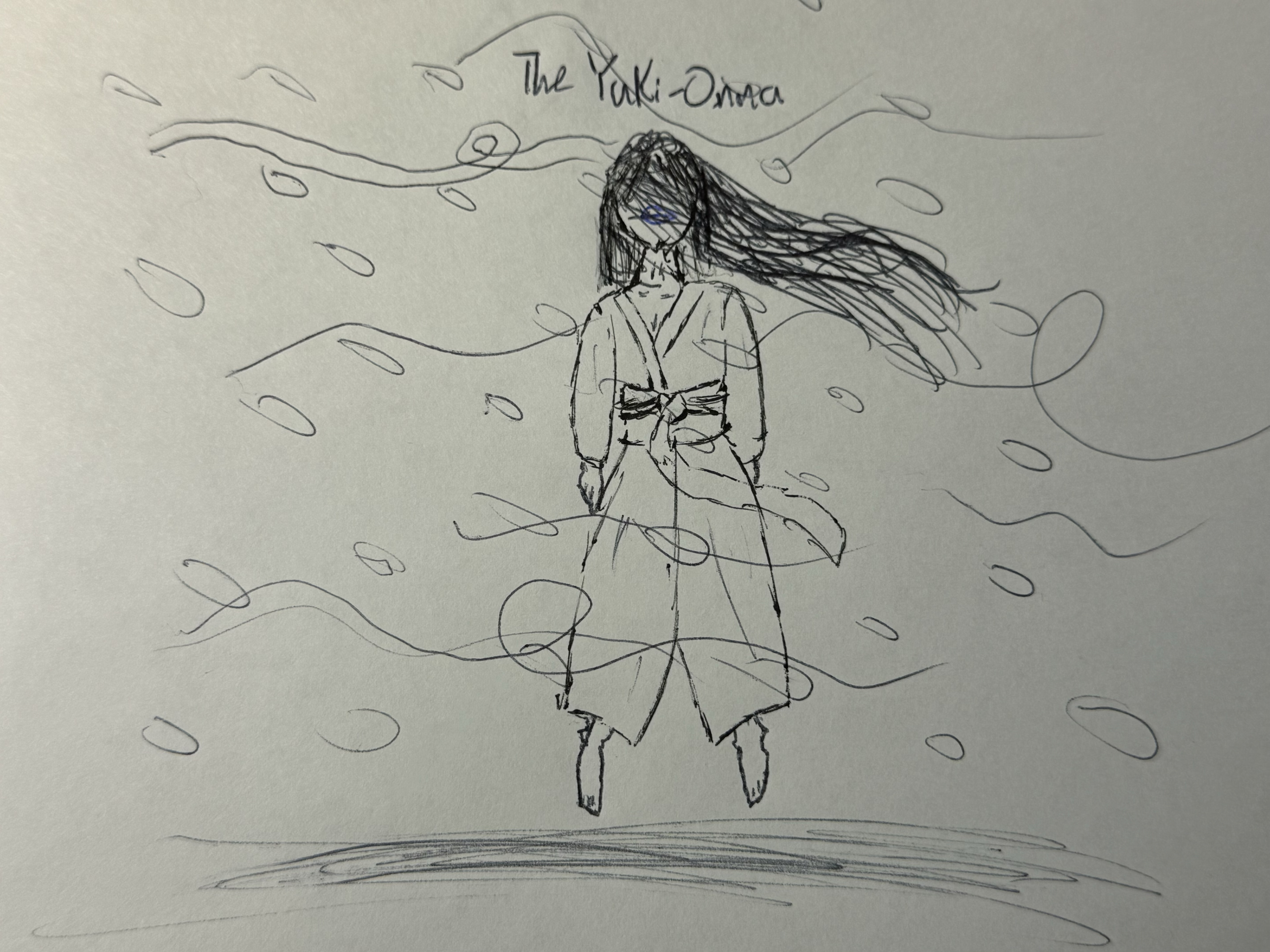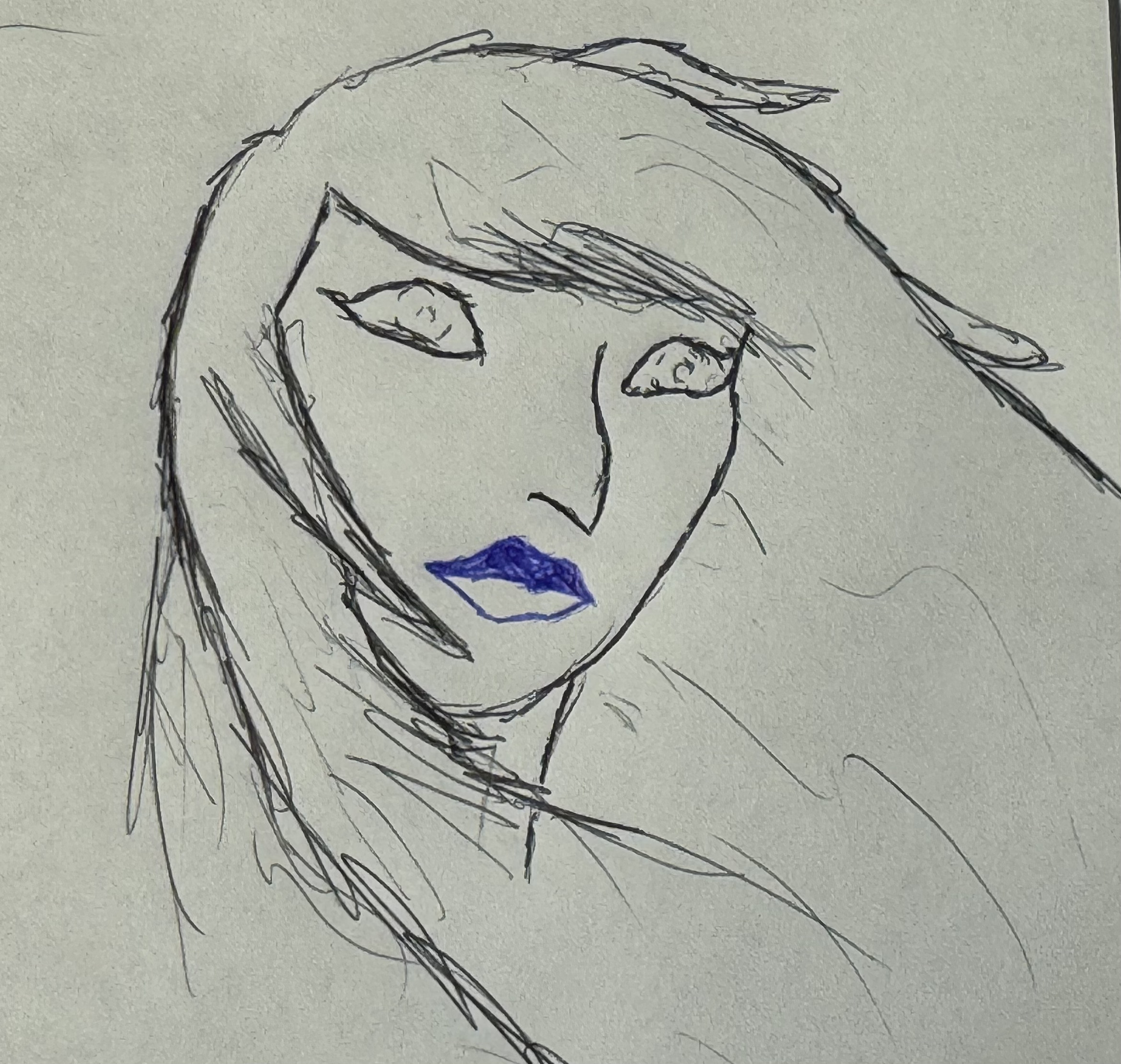
Japan (c.1300-1900's)

Japan (c.1300-1900's)

The Yuki-Onna is described as a beautiful woman with pale white skin, long black hair, and soft blue lips. She is described as having an "unnatural beauty" which leads many travellers to either be enthralled by her, or scared away helplessly. Her skin is cold to the touch, and she is frequently seen carrying what looks to be a frozen child. She typically wears a white kimono, but she has also been seen nude. As she moves through the snow, she leaves no footprints, and is prone to disappear into blizzards by transforming into mist or snow.
The first stories of the Yuki-Onna surfaced in the mountains of Japan sometime between the 1300's and 1500's. Though not exactly "modern", new stories have surfaced as late as 1904, with Lafcadio Hearn's retelling.
Tales of the Yuki-Onna change depending on the region. Stories of her behavior also changes between the regions she's encountered. Common tales of the Yuki-Onna include that she leads children and lonely people out into the snow, this is seen in places like the Niigata prefecture. Most of the time, her victims are travellers, who are lured away by their good nature in wanting to aid a woman in a blizzard. In other stories she goes after people in their own homes. It's been said that during blizzards, people living alone in their homes may hear knocking at the door. If they open the door, they will be led out into the blizzard by the spirit, where they're never seen again. It's been said that those led away by Yuki-Onna experience a sort of blissful fantasy that's fleeting as snow. Their bodies are later found, frozen and smiling.
Behavior ranges from benign to ferocious. Typically she's vampiric in nature, and feasts off the souls of her victims slowly she specifically targets lonely individuals and children. In one Aomori story, an old couple is visited by the Yuki-Onna, who poses as a traveller needing refuge from the cold. They invited her into their home where she sat by the hearth. But after only a couple of hours, she got up and excused herself from the home. The old man insisted she stay, as the blizzard was getting worse. But when he went to grab her wrist to stop her, he recoiled, realizing her skin was ice cold. Before he could say anything, she transformed into snowy slush, melting before their eyes.

Behavior in Hirosaki is much more outright murderous. In stories here, she is seen clutching a small child (who is actually a demon). She pleads with travellers to hold her child to warm it from the cold. Kind travellers who accept are immediately frozen in place as the snow builds around them and the child, and the Yuki-Onna watches delightedly as she drains their life force. If the traveler chooses not to accept the child, she apparently becomes ferocious and will pounce on them and slam their head into the ground (still killing them).
In one Hirosaki story, a warrior was approached by a Yuki Onna, instead of sheathing his blade to hold the child, he put it his tanto into his mouth, with the blade facing towards the child. As the snow slowly raised around him, it lifted his arms, slowly raising the child's head closer and closer to the blade. As his head got nearer, the Yuki-Onna finally panicked and snatched the child back to protect it. Impressed with the warrior's cleverness, she showers him with riches before disappearing into the snow.
Lafcadio Hearn was a Greek scholar in the early 1900's who spent the last 14 years of his life in Japan, and is responsible for introducing much of Japan's culture to the west. When hearing stories of the Yuki-Onna, his retelling is by far the most popular version of her story. Hearn's story is an adaptation of an old tale with unnamed characters. Hearn's version revolves around a woodcutter named Minokichi. When Minokichi was a young man, him and his fellow woodcutter Mosaku left their village to gather wood for the town. During their trek, a blizzard kicked up, and the two sought refuge in an abandoned house. As the storm raged on, day turned to night, and the two men fell asleep in the building. In the middle of the night, Minokichi woke up to see the Yuki-Onna floating over Mosaku. She breathed on Mosaku, freezing and killing the man. She floated over to Minokichi next, and as Minokichi lay frozen in terror, the unexpected happened. The Yuki-Onna spared him because she was fond of his looks, and as recompense for sparing him, made him vow to never tell another person what had happened that night.
Years passed, and Minokichi held true to his word. He started to wonder whether his experience was even real, or if it was just some dream. One day, he met a woman named O-Yuki (totally not obvious). This woman bared a haunting resemblance to the spirit he met that fateful night (I wonder why). Despite the mounting coincidences, he quickly fell in love with O-Yuki, and they soon got married. They lived happily together, and had many children together. After years together, Minokichi began to notice that his wife was still as young and beautiful as the day they'd met. Eventually, it ate away at Minokichi, and he confessed to O-Yuki about the experience he had that night. Immediately, O-Yuki began to yell at Minokichi. She told him "I told you not to tell another person about what happened that night! But... seeing as I'm not technically a person, I'll spare you again, on the condition that you protect our children!" Before Minokichi could apologize, O-Yuki began to melt into snow before his very eyes. Luckily for Minokichi, he was a good father, and he was able to take care of his children without incurring the wrath of his estranged ghost-wife.
Throughout all of the stories of the Yuki-Onna, there are a few recurring themes in her various stories. One recurring theme is that of Fleeting Happiness: in her more vampiric renditions, those she feeds off of die in a happy fantasy that's as fleeting as snow. Another major theme is Loneliness. The vast majority of Yuki-Onna's targets are either children or lonely adults. She leads travellers astray or visits the homes of lonely individuals to lead them away. I also think there's something to be said about Yuki-Onna's loneliness. As a spirit, there's a good chance she died out in the cold, just like her victims. I think it's also interesting to think about her vampiric renditions and wonder if her draining and killing of her victims is always intentional, or whether she wants to give people who have lived in pain and solitude a chance to feel peace and bliss. This leads to her last major theme, motherhood. In many of the retellings, she's clutching a child, and in the Lafcadio Hearn version, she even has multiple children with Minokichi (however that works) and spares his life for the sake of their kids!
Obviously, in many versions of her story, she's a violent, bloodthirsty monster. But personally, I like the idea that the Yuki-Onna is a lonely soul trying to help out other lonely souls in her own weird way. I see her as a motherly spirit trying to reclaim what she lost in her life, while accidentally killing people along the way. But, part of the appeal of this spirit is how diverse she, and her stories are. She manifests in different ways through different cultures, experiences, and interactions. No matter what, the Yuki-Onna is an insanely cool spirit! If you're ever alone in a snowstorm and see a beautiful woman, do not approach her unless you're a beautiful man or clever warrior.